7 ways to stay safe while using a generator
When storms strike, and the power goes out -- perhaps for an extended period -- many will rely on generators to keep the electricity flowing in their homes.
But generators can be dangerous if safety precautions aren't met. Here are seven ways to make sure you stay safe while using a generator:
1) Make sure to place your generator in a dry environment
Rain or snow could increase the risk of being electrocuted
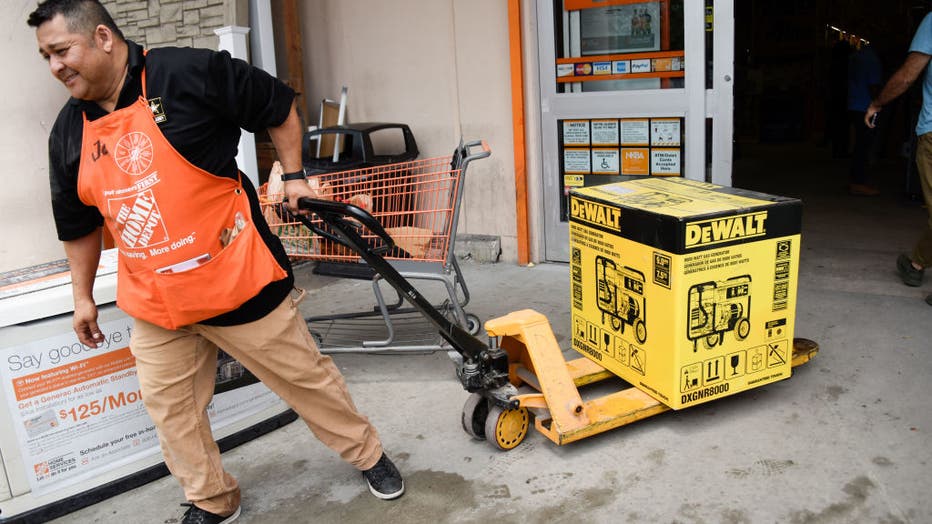
FILE - Workers help Florida residents at Home Depot where they are buying generator equipment and other supplies on August 29, 2019. (Photo credit: MICHELE EVE SANDBERG/AFP via Getty Images)
2) Make sure to place your generator outdoors and not directly next to the home
Never use generators inside, as their exhaust can lead to deadly carbon monoxide poisoning. Generators should be placed away from windows and doors to keep the exhaust out of homes.
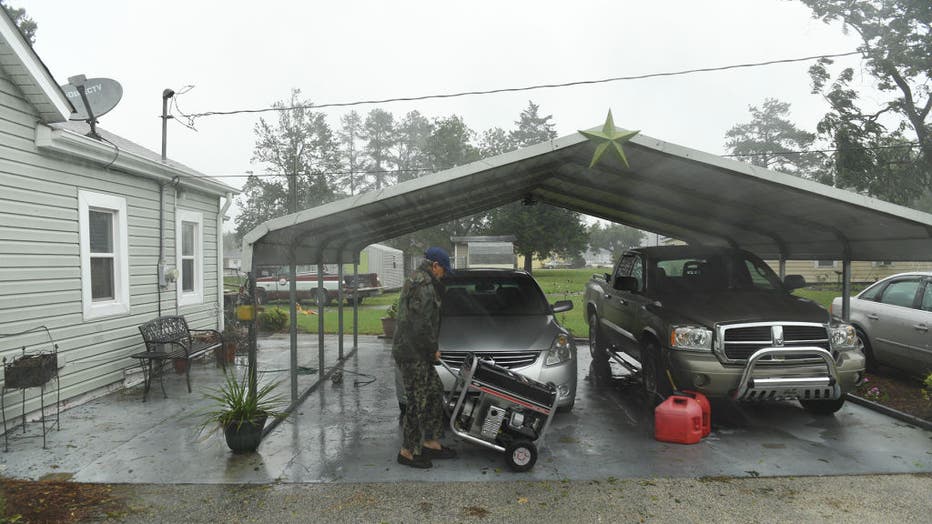
FILE - A person sets up a generator outside the home on Sept. 14, 2018, in Pembroke, North Carolina. (Photo by RJ Sangosti/The Denver Post via Getty Images)
3) Have a licensed electrician install your generator
It’s not safe to plug your generator into a wall outlet. Make sure a licensed electrician correctly installs your generator to your home’s main electrical panel.
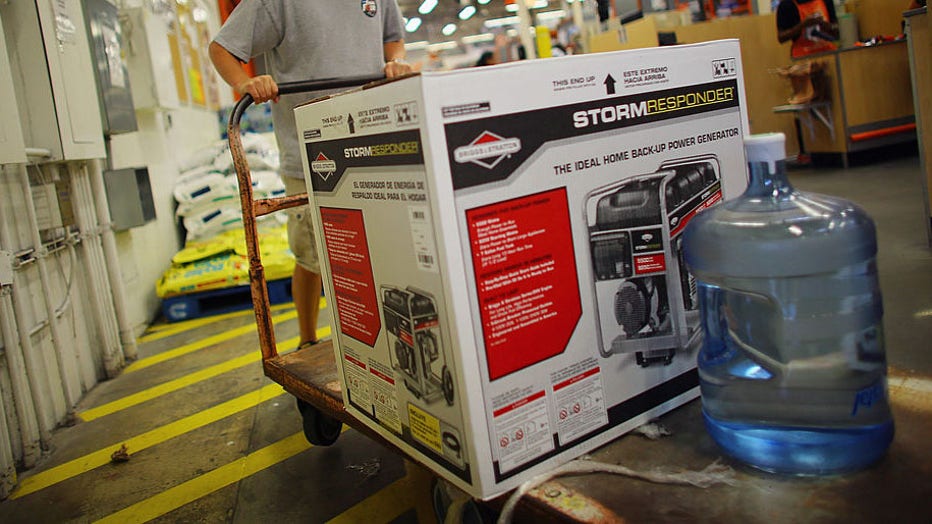
FILE - A person buys a generator and water at Home Depot on Aug. 25, 2012, in Tampa, Florida. (Photo by Joe Raedle/Getty Images)
4) Get an annual inspection for your generator
Make sure to get a yearly inspection so that your generator is safe to use in the event of a major storm or power outage. You don’t want to wait until your power is already out to see if it is safe to use.
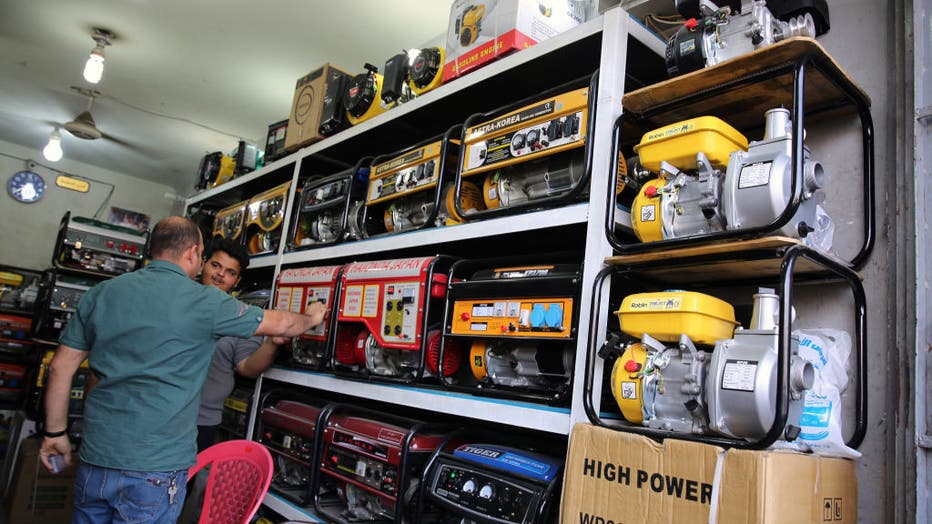
FILE - A man shops at a store selling power generators in a file image dated April 7, 2018. (Photo credit: SABAH ARAR/AFP via Getty Images)
5) Keep a proper amount of fuel at all times
Since storms are unpredictable, as well as other situations that cause power outages, it is best always to keep a sufficient amount of fuel so that you are always prepared. Make sure to store the fuel in a safe, dry place.
6) Turn your generator off before adding fuel
If your generator is low on fuel, make sure to turn it off entirely and let it cool down before adding any more.
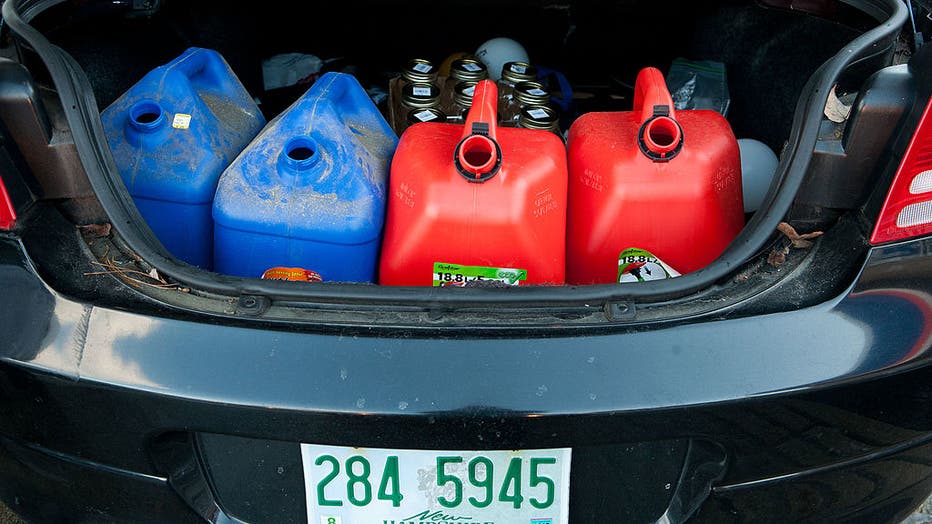
FILE- A person fills up gas containers for an at-home generator on Oct. 30, 2011, in Nashua, New Hampshire. (Photo by Kayana Szymczak/Getty Images)
7) Plug devices directly into the generator
It is best to plug devices and appliances directly into the generator or into heavy-duty extension cords.

